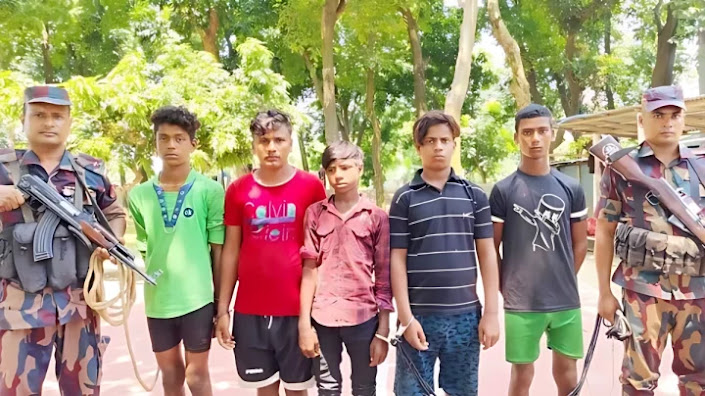The news that the Border Guard Bangladesh (BGB) did not return five detained Indians marks a significant and unusual development in the handling of border security and diplomatic relations between Bangladesh and India. Typically, when individuals inadvertently cross the border, they are quickly returned to their home country as part of standard operating procedures and mutual understanding between the two nations. This situation, however, appears to deviate from the norm, potentially signaling deeper issues or heightened tensions.
### **1. Background of the Incident**
The incident involves the BGB detaining five Indian nationals who were found on the Bangladeshi side of the border. The exact circumstances under which they crossed the border—whether inadvertently or with intent—are crucial in understanding the gravity of the situation. Typically, such cases are resolved swiftly through local-level diplomacy, with individuals returned after being handed over in a flag meeting between BGB and their Indian counterparts, the Border Security Force (BSF).
### **2. Possible Reasons for Non-Return**
- **Security Concerns:** One of the primary reasons for not returning the detainees could be security concerns. If the BGB suspects that the individuals crossed the border with malicious intent, such as smuggling, espionage, or other illegal activities, they might choose to hold them for further investigation.
- **Diplomatic or Political Motives:** This action could also be interpreted as a diplomatic signal. If relations between Bangladesh and India are strained over border management or other bilateral issues, the decision not to return the detainees could be a way to exert pressure or express dissatisfaction.
- **Legal Processes:** The detained individuals might be subject to legal proceedings within Bangladesh if they are found to have committed offenses under Bangladeshi law. In such cases, they might be prosecuted rather than returned immediately.
### **3. Implications for Bilateral Relations**
- **Potential Strain:** This incident could lead to a temporary strain in Bangladesh-India relations, particularly if it is seen as a break from the established protocol. The Indian government is likely to seek an explanation and resolution through diplomatic channels.
- **Impact on Border Management:** This development could affect how both countries manage their borders going forward. There might be increased scrutiny or changes in procedures to prevent similar incidents from escalating into diplomatic issues.
- **Public Perception:** The incident might affect public perception in both countries, especially if it is seen as a case of one country not respecting mutual agreements or norms. This could lead to heightened tensions at the local level, particularly in border areas.
### **4. Possible Outcomes**
- **Diplomatic Negotiations:** The most likely immediate outcome would be diplomatic negotiations to resolve the situation. India might seek the quick return of its citizens, while Bangladesh may request guarantees or clarifications to address any concerns that led to the detention.
- **Legal Proceedings:** If the individuals are found guilty of offenses under Bangladeshi law, they could face legal action, which might delay their return and complicate diplomatic efforts.
- **Future Protocol Adjustments:** This incident might lead to a review and adjustment of protocols between BGB and BSF to ensure better handling of similar situations in the future, preventing such occurrences from becoming diplomatic flashpoints.
### **Conclusion**
The decision by BGB not to return the detained five Indians is a significant departure from the usual practice and could indicate underlying security concerns, legal issues, or diplomatic tensions. How this situation is resolved will likely depend on ongoing diplomatic discussions between Bangladesh and India, and it could have broader implications for future border management and bilateral relations.










